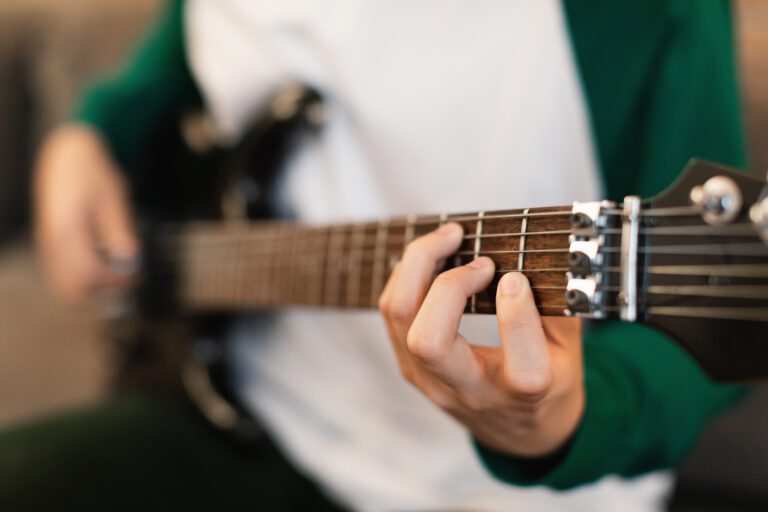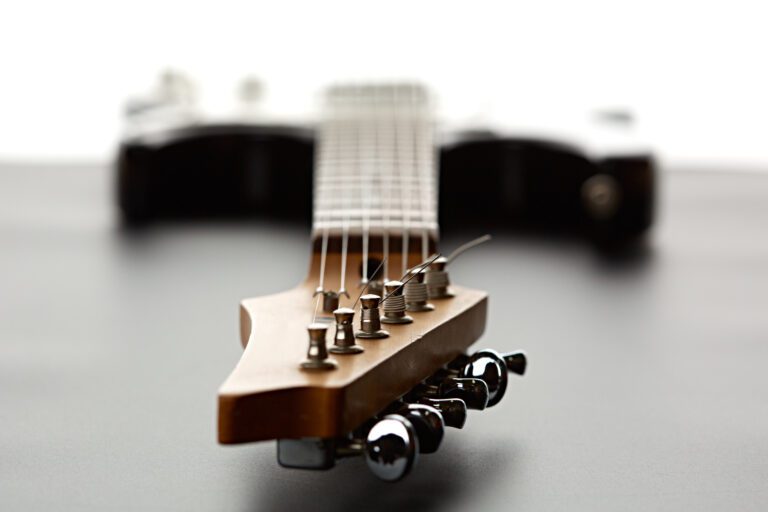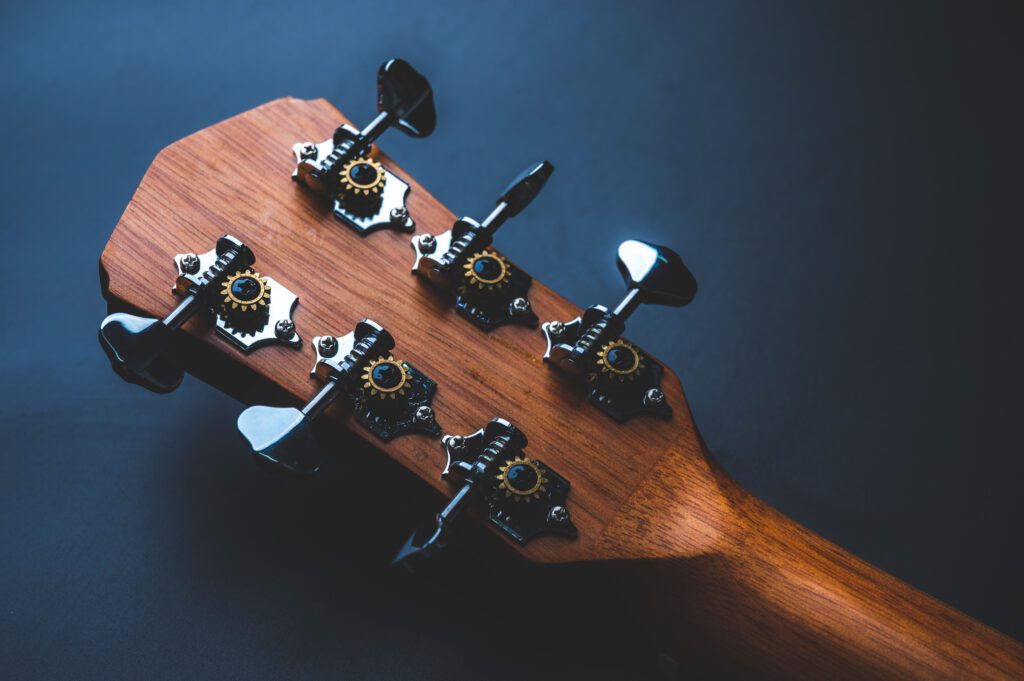Guitar Practice Structure for Effective Improvement
At The Mystic Keys, we believe that mastering the Guitar Practice Structure isn’t just about talent—it’s about consistent practice, structured learning, and the right guidance.
In this blog, we’ll break down the ultimate guitar practice structure to ensure you make steady progress, whether you’re a beginner or an advanced player. Let’s dive into tips, techniques, and routines that will take your skills to the next level.
The Importance of Structured Practice

Practicing without a plan can lead to frustration and wasted effort. A structured approach ensures that every minute spent on your guitar translates into skill improvement. Here’s what a well-structured practice session achieves:
Targets specific skills like technique, theory, or improvisation.
Builds muscle memory and develops finger strength.
Keeps you motivated with measurable progress.
How to Structure Your Guitar Practice Routine

1. Warm-Up (5–10 Minutes)
Before diving into your session, warm up your fingers and hands. This helps prevent injuries and improves agility.
Finger Exercises: Play chromatic scales or spider exercises to loosen up your fingers.
Stretching: Gently stretch your hands and wrists to improve flexibility.
Simple Chord Changes: Strum basic chord progressions to ease into practice.
2. Technique Development (20–30 Minutes)
Focus on building technical skills such as speed, accuracy, and coordination.
Scales Practice: Learn major, minor, and pentatonic scales to improve finger independence and fretboard knowledge.
Alternate Picking: Use a metronome to refine your picking accuracy.
Fingerpicking: Work on arpeggios or classical-style pieces to develop right-hand techniques.
3. Repertoire Building (30–40 Minutes)
Learning new songs is not just fun; it reinforces your technique and broadens your musical vocabulary.
Choose songs that match your skill level but challenge you slightly.
Break songs into sections and practice them slowly before speeding up.
Experiment with different genres like rock, jazz, blues, or classical to diversify your playing style.
4. Music Theory (15–20 Minutes)
Understanding the theory behind the music you play is vital for creativity and improvisation.
Chords & Progressions: Study how chords are constructed and explore different progressions.
Ear Training: Practice identifying intervals, chords, and melodies by ear.
Improvisation: Use scales and modes to create solos over backing tracks.
5. Creative Exploration (10–15 Minutes)
Set aside time for creative activities that keep you inspired and engaged.
Songwriting: Experiment with chord progressions and melodies to compose your music.
Improvisation: Jam along with tracks to develop your personal style.
Recording & Review: Record yourself playing and critique your performance.
6. Cool Down (5–10 Minutes)
End your practice session with a cooldown to relax your muscles and reflect on your progress.
Play simple, calming melodies or chords.
Note what you accomplished during the session and set goals for your next one.
Tips for Effective Guitar Practice

1. Set Goals: Define what you want to achieve in each practice session.
2. Stay Consistent: Practice daily, even if only for a short time.
3. Use a Metronome: It’s an invaluable tool for timing and rhythm.
4. Practice Slowly: Speed comes naturally with precision—start slow and focus on accuracy.
5. Take Breaks: Avoid burnout by taking short breaks during long sessions.
6. Stay Motivated: Listen to your favorite guitarists and set long-term goals to keep yourself inspired.
Common Mistakes to Avoid

Skipping Warm-Ups: Diving into complex pieces without warming up can lead to injuries.
Neglecting Theory: Ignoring theory limits your ability to improvise and compose.
Overplaying Without Rest: Practicing too much without breaks can cause fatigue and slow progress.
Why Learn Guitar with The Mystic Keys?

At The Mystic Keys, we provide:
One-on-One Lessons: Learn from Experienced Music Instructors having certifications from International Music Colleges such as Trinity College London, ABRSM & RSL
Flexible Scheduling: Learn at your convenience with reschedulable Zoom lessons.
International Music College Certifications: Build your credentials as a musician.
Session Materials: Receive notes, recordings, and personalized feedback after every lesson.
Start Your Guitar Journey Today
Whether you’re just starting or looking to refine your skills, the key to improvement is a structured, consistent practice routine. With guidance from experienced instructors and the right practice techniques, you can achieve your musical goals.
For more personalized guidance, visit us








